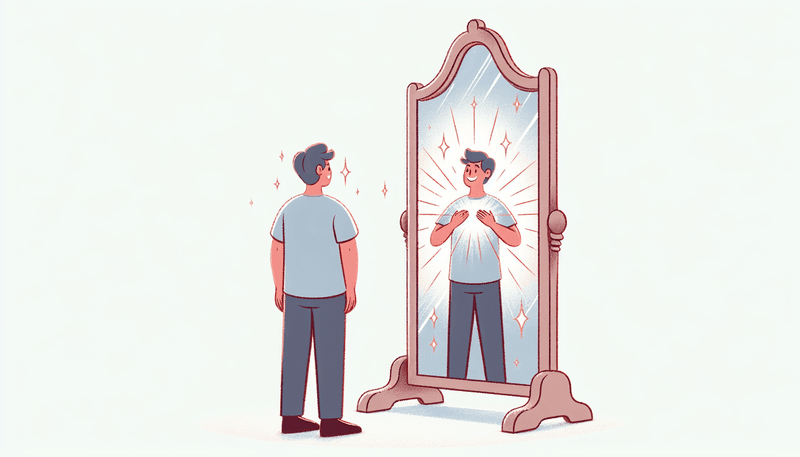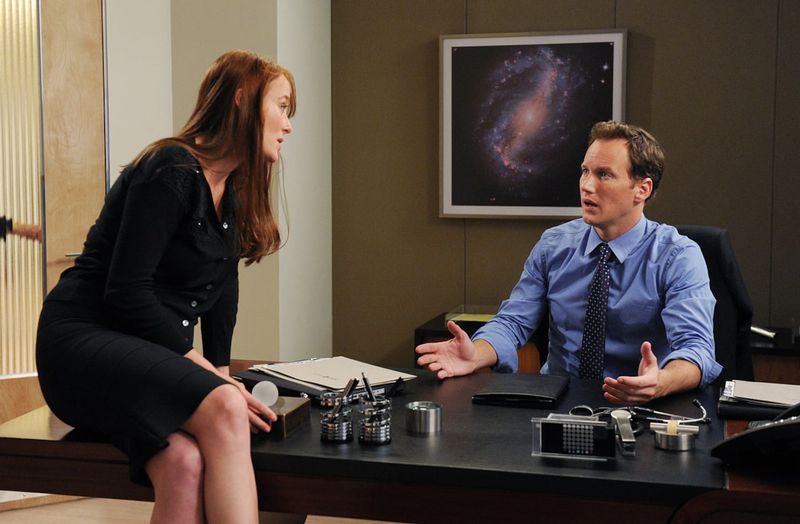Do you notice how some people just don’t put up with anyone’s drama? I mean, they cut through the noise, handle business, and never seem confused about what matters. If you grew up with parents who didn’t let nonsense anywhere near your childhood, you know exactly what I’m talking about.
It’s not always obvious at first, but looking back, you see the fingerprints everywhere: the way you answer your phone, how you show up for work, even how you clean your kitchen at midnight when you’re mad. This isn’t just about being tough. It’s about clarity—a kind of no-BS radar you can’t turn off, even when you try.
If you’ve ever found yourself apologizing for other people’s mess or wondering why you can’t just let things slide, you’re not alone. Here are 18 signs you were raised by parents who didn’t tolerate nonsense—and how it shaped you in ways you might not even realize.
1. You Can Spot Excuses a Mile Away
The moment someone tries to slide an excuse past you—maybe it’s a coworker blaming traffic for the third time this week—you feel your internal radar beep. You don’t buy it, and you never really have. This isn’t about being cynical, it’s just that you grew up hearing, “Just own up to it.”
When you were a kid, “the dog ate my homework” got you nowhere. Your parents cut through stories so fast, you learned early not to bother. Now, you catch yourself doing the same, seeing through the fog, and wondering why so many adults still think excuses work.
It’s not about being hard on people. You just value honesty over a quick dodge. You know that facing the music is the only way anyone ever changes. If that makes you seem tough, so be it.
2. You Apologize (For Real) Without Being Pushed
Do you notice how most apologies sound like, “Sorry you felt that way?” Not you. When you mess up, you own it—no hedging, no shifting blame. You learned young that anything else gets called out instantly.
Maybe your mom stopped you mid-sentence: “Is that an apology, or are you just dodging?” It stuck. Now, you don’t wait for someone to pry an apology out of you. You just say it, fix it, and move on.
People sometimes look surprised, probably because they’re used to half-apologies. But you know better—real apologies aren’t weakness. They’re the only way trust gets built back. That’s not just manners. It’s muscle memory from a no-nonsense childhood.
3. “Because I Said So” Still Makes You Twitch
You hear someone say, “Because I said so,” and you feel yourself tense up. That phrase followed you around your whole life, and it never sat right. It meant: End of story, don’t ask questions.
Maybe you even vowed you’d never use it on your own kids. You learned to crave real answers, actual reasons, not just authority flexing. To this day, you want to know why, not just what.
It’s funny—sometimes your friends say you’re stubborn. But all you want is honesty and respect, not just orders. If that makes you hard to boss around, it’s only because you grew up with people who refused to argue with children.
4. You Keep Your Promises—Even If No One Notices
If you say you’re going to do something, you do it—even if it’s just taking out the trash, even if nobody thanks you. You learned very quickly that your word was your currency. Promises weren’t suggestions. They were binding.
Maybe your parents only had to say it once: “If you can’t keep your word, don’t give it.” That’s still ringing in your ears. So, you show up, finish what you start, and people know they can count on you.
It isn’t about glory. It’s about integrity. You don’t need applause; you just need to sleep at night, knowing you did what you said you would. It’s a kind of invisible pride you can’t quite shake.
5. You Don’t Air Dirty Laundry in Public
Some people can’t wait to spill their family drama to anyone who’ll listen. Not you. You keep certain things private, and it’s not about secrets—it’s about respect.
Maybe your parents warned: “Our business stays in this house.” If you broke that rule, you felt the consequences. Now, you’re careful with what you share, and with whom.
You’re not closed off. You just believe some stories aren’t for public consumption. It’s about holding boundaries, not building walls. The world doesn’t need to know everything, and that’s just how you were raised.
6. You Can’t Stand Wishy-Washy Answers
When someone dodges a question or can’t make up their mind, you feel your patience evaporate. You grew up in a house where clarity was everything. Vagueness? Not allowed.
If you asked for something as a kid, you got a yes or a no. Maybe it stung, but at least you knew where you stood. You carry that into every conversation now.
You don’t need people to agree with you, but you need them to be clear. Life’s messy enough—don’t make it messier with half-truths or maybes. You crave certainty, even though it’s uncomfortable.
7. You’re the Reliable One When Things Fall Apart
When chaos hits—lost job, broken hearts, emergencies—people look to you. You don’t panic. You inherited a steady hand from parents who didn’t do drama, just solutions.
Forse you learned to stay calm during family crises, watching grownups hold the line. Now, you do the same, and it feels as natural as breathing. You know someone has to keep their head.
It’s not because you have all the answers. You just refuse to let panic run the show. If something needs doing, you step up. If that makes you the rock, it’s only because you had to learn young what it means to carry weight.
8. You Have a Built-In Bullshit Detector
You hear a story that doesn’t add up, and you can’t help it—your face gives you away. You learned how to spot half-truths and exaggerations before you could spell “lie.”
It’s a gift and a curse. Friends joke you could’ve worked for the FBI. But mostly, it means you expect people to say what they mean, and you spot the gaps instantly.
You’re not trying to embarrass anyone. You just know how much truth matters, and your radar never sleeps. If you’re a little allergic to tall tales, blame your upbringing.
9. You Learned to Speak Up, Even When It Was Uncomfortable
You remember the nerves—speaking up when it’d be easier to stay quiet. But your parents didn’t let you shrink. They wanted you to use your voice, even if it shook.
You’re not always comfortable with confrontation, but you never let fear make your choices. You learned that silence never fixed anything. So you speak, even if it costs you.
It doesn’t always land. Sometimes you walk away second-guessing. But you’d rather deal with awkwardness than regret keeping your head down. That’s what real courage looked like in your house.
10. You Don’t Need External Validation
You don’t chase likes or fish for compliments. Your parents didn’t hand out gold stars for every little thing, so you learned to find satisfaction in your own effort. Approval’s nice, but it isn’t oxygen.
You get your validation from quiet moments—finishing something hard, keeping a promise to yourself, helping someone who’ll never pay you back. It’s internal, not performative. You don’t need a parade.
If people don’t notice your wins? That’s fine. You weren’t raised to need applause. You learned self-respect the hard way: by earning it, not waiting for permission.
11. You Notice Inconsistencies Instantly
It’s almost a superpower: you catch tiny discrepancies other people miss. Maybe it started with your parents side-eyeing your stories when the details didn’t line up. You learned to pay attention.
At work, this means you spot errors in reports, gaps in logic, or shifting stories. You don’t let things slide, because you know that small lies turn into big problems. It’s less about nitpicking and more about respect for truth.
You get called detail-oriented, but you know the real reason: you grew up with people who didn’t let much slip by. You can’t unsee it now.
12. You Value Efficiency Over Drama
You never understood people who make a big show out of simple problems. If something’s broken, you fix it. If there’s a mess, you clean it up. That’s just how you were taught.
Your parents didn’t entertain drama, so neither do you. Efficiency isn’t just a work habit—it’s in your bones. You don’t need to make things harder than they have to be.
When someone tries to pull you into chaos, you cut through it and get to work. It’s not about being cold. You just know that energy is better spent solving problems than feeding them.
13. You Don’t Get Defensive When Called Out
When someone calls you out, you don’t melt down or snap back. You listen, consider, and if they’re right, you take it. That’s not weakness—it’s something you learned watching grownups own their mistakes.
Your parents didn’t let you off the hook, and you learned not to let yourself off, either. You know defensiveness gets you nowhere, and you don’t have time for it.
It’s not always fun. Sometimes it stings. But you know that the only way to get better is to face the truth, even when it’s uncomfortable. That’s real strength, not just politeness.
14. You’re Not Impressed by Flashy Talk
Rah-rah speeches, big promises, over-the-top energy—none of it fazes you. You learned that real substance is quiet and consistent, not loud. Your parents valued action over words every single time.
You don’t fall for hype or sales pitches. You want to see the receipts. If someone’s all talk, you tune out pretty quickly and wait to see if they deliver.
Maybe you get called skeptical. But you just know that real trust is earned in the trenches, not with shiny slogans. You’re not cynical; you’re just grounded.
15. You Can Set Boundaries (Even When It’s Hard)
You learned early that not everyone gets access to your time or your energy. Your parents held boundaries, and you picked up on it—sometimes the hard way. Now, you know how to say no and mean it.
Setting boundaries still isn’t easy. At times it means disappointing people you care about or holding the line when everyone else is folding. You do it anyway, because you know what happens when you don’t.
You’re not ruthless. You just know that self-respect is non-negotiable. If a line needs drawing, you draw it. That’s how you protect your peace.
16. You Don’t Sugarcoat Feedback
When someone asks for your opinion, you don’t wrap it in layers of fluff. You say what you mean—kindly, but clearly. You’d rather be helpful than just nice.
You learned that false praise does more harm than good. Your parents wanted you to improve, not just feel good in the moment. So you give feedback like a grownup, not a politician.
Sometimes people flinch. But you know being honest is an act of respect, not cruelty. You’d want the same from others, and you don’t apologize for it.
17. You Don’t Wait for Permission to Fix Problems
You see something broken, your first impulse is to fix it. You don’t wait for someone to tell you it’s okay. Growing up, nobody coddled you, and you learned to take initiative.
Maybe you started with chores: no one reminded you twice, and if something needed doing, you just did it. That habit never left. Now, you tackle problems head-on, often before anyone else notices.
You don’t need credit. You just can’t stand letting messes linger. If you see a need, you jump in. That’s how you were built.
18. You’re Not Afraid to Be the “Bad Guy” If It Means Being Honest
It’s those moments—telling someone what they don’t want to hear, knowing you’ll take the heat. You don’t love conflict, but you don’t run from it, either. Honesty matters more than being liked.
Parents showed you that sometimes, doing the right thing makes you unpopular. You don’t enjoy it, but you don’t back down, either. You can be kind and honest at once.
You don’t fear being cast as the “bad guy” if it means saying what needs to be said. If people think you’re too blunt, you’d rather that than be a liar. You sleep fine knowing you stood in the truth.



















